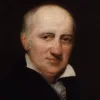There is always something pleasurable in the struggle and the victory. And if a man has no opportunity to excite himself, he will do what he can to create one, and according to his individual bent, he will hunt or play Cup and Ball: or led on by this unsuspected element in his nature, he will pick a quarrel with someone, or hatch a plot or intrigue, or take to swindling and rascally courses generally — all to put an end to a state of repose which is intolerable.
[Der Kampf mit ihnen und der Sieg beglückt. Fehlt ihm die Gelegenheit dazu, so macht er sie sich, wie er kann: je nachdem seine Individualität es mit sich bringt, wird er jagen, oder Bilboquet spielen, oder, vom unbewußten Zuge seiner Natur geleitet, Händel suchen, oder Intriguen anspinnen, oder sich auf Betrügereien und allerlei Schlechtigkeiten einlassen, um nur dem ihm unerträglichen Zustande der Ruhe ein Ende zu machen.]
Arthur Schopenhauer (1788-1860) German philosopher
Parerga and Paralipomena, Vol. 1, “Aphorisms on the Wisdom of Life [Aphorismen zur Lebensweisheit],” ch. 5 “Counsels and Maxims [Paränesen und Maximen],” § 2.17 (1851) [tr. Saunders (1890)]
(Source)
(Source (German)). Alternate translation:The struggle with [obstacles] and the triumph make him happy. If he lacks the opportunity for this, he creates it as best he can; according to the nature of his individuality, he will hunt or play cup and ball; or, guided by the unconscious urge of his nature, he will pick a quarrel, hatch a plot, or be involved in fraud and all kinds of wickedness, merely in order to put an end to an intolerable state of repose.
[tr. Payne (1974)]
Quotations about:
mischief
Note not all quotations have been tagged, so Search may find additional quotes on this topic.
I believe in kindness. Also in mischief. Also in singing, especially when singing is not necessarily prescribed.
Government was intended to suppress injustice, but it offers new occasions and temptations for the commission of it.
William Godwin (1756-1836) English journalist, political philosopher, novelist
Enquiry Concerning Political Justice, “Summary of Principles” 2.4 (1793)
(Source)
And I have again observed, my dear friend, in this trifling affair, that misunderstandings and neglect occasion more mischief in the world than even malice and wickedness. At all events, the two latter are of less frequent occurrence.
[Und ich habe, mein Lieber, wieder bei diesem kleinen Geschäft gefunden, dass Missverständnisse und Trägheit vielleicht mehr Irrungen in der Welt machen als List und Bosheit. Wenigstens sind die beiden letzteren gewiss seltener.]
Johann Wolfgang von Goethe (1749-1832) German poet, statesman, scientist
Die Leiden des jungen Werthers [The Sorrows of Young Werther], “Letter from May 4th” (1774)
Alt. trans.: "Misunderstandings and neglect create more confusion in this world than trickery and malice. At any rate, the last two are certainly much less frequent."
By the frame of the Government under which we live this same people have wisely given their public servants but little power for mischief, and have with equal wisdom provided for the return of that little to their own hands at very short intervals. While the people retain their virtue and vigilance no Administration by any extreme of wickedness or folly can very seriously injure the Government in the short space of four years.
Abraham Lincoln (1809-1865) American lawyer, politician, US President (1861-65)
Speech (1861-03-04), Inaugural Address, Washington, D. C.
(Source)






